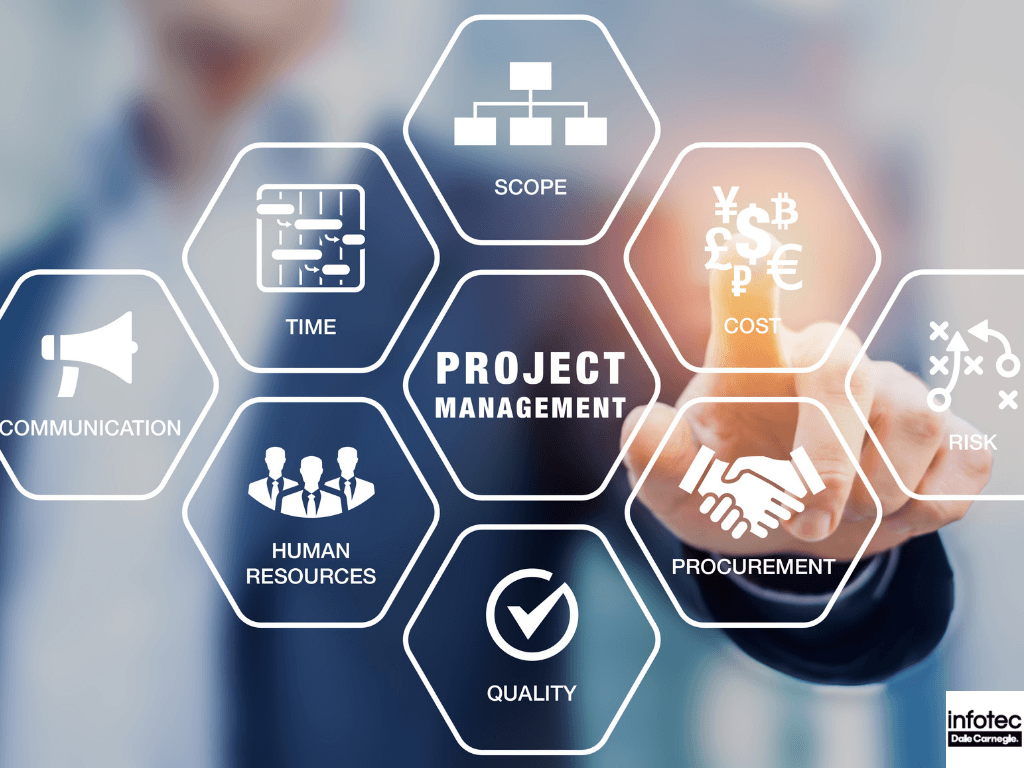The Role of a Project Manager: A Day in the Life
The Role of a Project Manager: A Day in the Life
Blog Article

In the dynamic world of project management, the role of a project manager is pivotal to the success of any initiative. These professionals are the heart of a project, orchestrating various elements and ensuring that everything runs smoothly from inception to completion. A typical day for a project manager can be a whirlwind of meetings, planning sessions, and problem-solving, all while keeping the project team motivated and aligned with the overall goals.
Each day presents new challenges and opportunities, requiring project managers to balance multiple tasks and to communicate effectively with diverse stakeholders. From creating detailed project plans to managing budgets and timelines, their responsibilities are vast. Understanding the intricacies of this role can provide valuable insights into the art of project management and the essential skills that drive successful outcomes.
Daily Responsibilities
A project manager's day often begins with reviewing the project timeline and status updates to ensure everything is on track. They check in with team members to gather progress reports, address any immediate concerns, and realign priorities as necessary. This early interaction fosters communication and keeps the team motivated and focused on their goals.
Throughout the day, the project manager holds meetings to discuss various aspects of the project. These can range from brief stand-ups to detailed planning sessions. During these meetings, they facilitate discussions, encourage collaboration, and ensure that each member understands their tasks and deadlines. The ability to pivot and adjust plans on the fly is crucial as challenges and new information arise.
Additionally, the project manager spends time monitoring risk factors and resource allocation. They analyze potential pitfalls and develop strategies to mitigate them while also ensuring that the team has the necessary tools and support to execute their tasks effectively. Balancing these responsibilities requires strong organizational skills and the ability to prioritize tasks based on immediate needs and long-term project goals.
Key Skills Required
Effective communication is one of the most crucial skills for a project manager. A project manager must be able to convey ideas, instructions, and feedback clearly to team members, stakeholders, and clients. This involves not only verbal communication but also written communication. The ability to listen actively and respond appropriately helps in building trust and rapport within the team, facilitating collaborative efforts towards project goals.
Another essential skill is organization. A project manager must juggle multiple tasks, deadlines, and resources simultaneously. Keeping track of progress, schedules, and budgets requires a keen ability to prioritize and delegate tasks effectively. Organizational skills help in maintaining clarity and ensuring that every aspect of the project is aligned towards successful completion, minimizing delays and misunderstandings.
Problem-solving abilities are vital in project management. Challenges and unexpected issues often arise during the course of a project, and it is the responsibility of the project manager to address these promptly and efficiently. Strong analytical thinking enables a project manager to identify potential risks, develop strategies to mitigate them, and make informed decisions that keep the project on track. This adaptability is essential for navigating the dynamic nature of project environments.
Challenges Faced
Project managers often encounter a variety of challenges that can impact the success of their projects. One significant challenge is managing scope creep. This occurs when additional features or changes are requested after the project has begun, often leading to a dilution of the original goals and increased workload. To combat this, effective communication and clear documentation of project requirements are essential. Project managers must remain vigilant in ensuring that any changes are properly evaluated and approved to maintain project integrity.
Another common issue is resource allocation. Project managers must balance the workload of their team while ensuring that tasks are completed on time and to quality standards. Limited resources, whether in terms of staff or budget, can create pressure that affects the overall project delivery. Successful project managers develop contingency plans and prioritize tasks, ensuring that critical paths are identified to keep the project on track even when resources are strained.
Finally, stakeholder management presents its own set of challenges. Different stakeholders often have varying expectations and levels of engagement, which can lead to conflicts if not properly managed. Project managers need to establish strong relationships with stakeholders and provide regular updates to maintain alignment and trust. By effectively addressing concerns and involving stakeholders in decision-making, project managers can navigate these complexities and drive project success.
Project Management Certificate
Tools and Techniques
Effective project management relies heavily on an array of tools and techniques that streamline workflows and enhance collaboration. Project management software, such as Trello, Asana, and Microsoft Project, plays a crucial role in organizing tasks, setting deadlines, and tracking progress. These platforms allow project managers to visualize the project timeline and allocate resources efficiently, which ultimately leads to improved performance and accountability among team members.
In addition to software tools, techniques like Agile and Waterfall methodologies provide structured approaches to managing projects. The Agile methodology emphasizes adaptability and iterative progress, making it suitable for projects that require frequent changes and stakeholder feedback. On the other hand, the Waterfall approach is more rigid and linear, ideal for projects with clearly defined stages and requirements. By selecting the appropriate methodology, project managers can tailor their strategies to fit the unique needs of each project.
Communication tools are another essential component of project management. Platforms like Slack and Zoom facilitate real-time communication among team members, regardless of their geographical locations. By ensuring that everyone stays connected, project managers can foster collaboration and resolve issues promptly. Ultimately, the combination of these tools and techniques is vital for maintaining clarity, efficiency, and team cohesion throughout the project life cycle.
Report this page